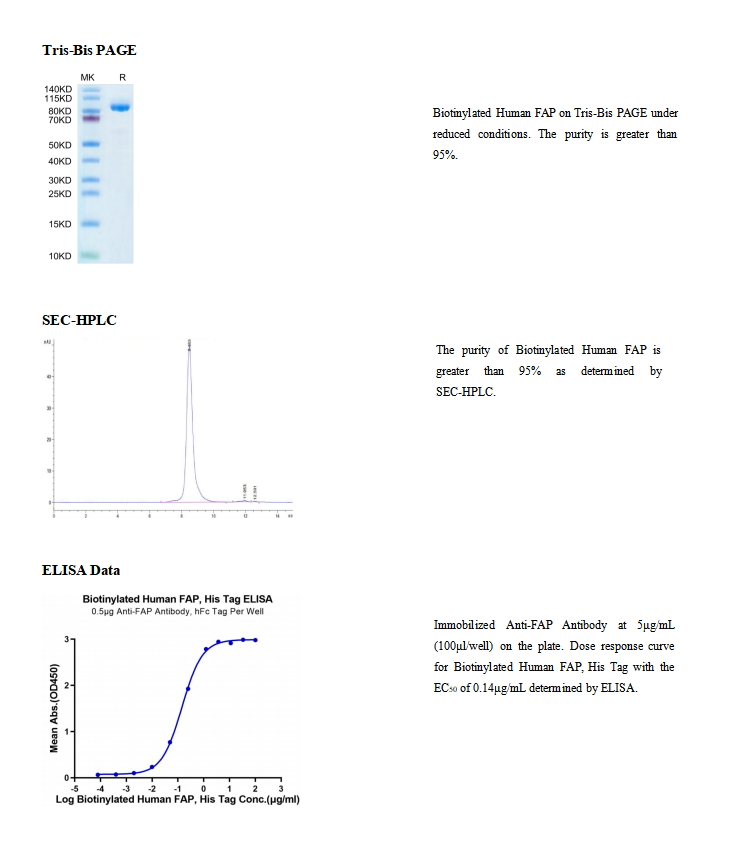FAP (also known as seprase) is a 95 kDa Type II transmembrane serine protease that is structurally related to dipeptidyl peptidase IV (DPPIV/CD26). Within the extracellular domain (ECD), human FAP shares 90% amino acid (aa) sequence identity with mouse and rat FAP. A soluble and enzymatically active form of FAP known as antiplasmin-cleaving enzyme (APCE) circulates in human plasma. FAP is expressed on reactive stromal fibroblasts in tumor tissue and wound healing and on synoviocytes in rheumatoid arthritis. FAP is also an endopeptidase that can degrade Gelatin, Collagens I and IV, Fibronectin, and Laminin as well as several peptide hormones (e.g. Neuropeptide Y, Brain Natriuretic Peptide, Substance P, Peptide YY, and Incretins). The enzymatic activity is dependent on FAP association with DPPIV on the cell surface. The matrix-dedgrading activity of FAP contributes to tumor cell migration and invasion. In addition, FAP can enhance tumor cell growth by limiting the development of anti-tumor immunity.
高纯度、高活性、低内毒素、高批间一致性

-25 ~ -15℃保存,收到货之后有效期1年。 复溶后, 无菌条件下,-85 ~ -65℃保存,3个月有效期。
